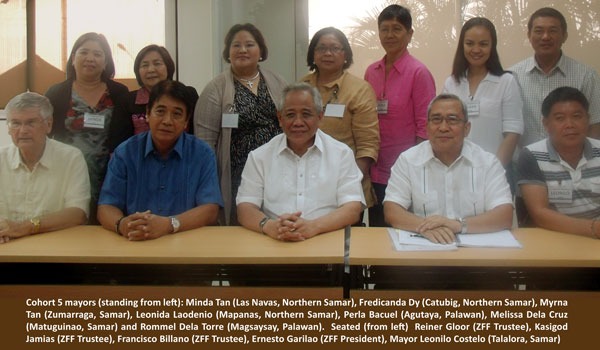ZFF picks partner LGUs from geographically isolated and disadvantaged areas
News | by ZFF Admin

On top of being classified as geographically isolated and disadvantaged areas (GIDA), eight new partner-municipalities of the Zuellig Family Foundation have weak health systems that have been making it difficult for residents to access health services and programs. According to the Department of Health, GIDAs “refer to communities with marginalized population physically and socio-economically separated from the mainstream society.”
They are “isolated due to distance, weather conditions and transportation difficulties (island, upland, lowland, landlocked, hard to reach and unserved or underserved communities).” There is also high poverty incidence and presence of vulnerable sectors and communities that are either in or are recovering from crisis situation or armed conflict.
Years of neglect for health made residents passive participants in healthcare while local leaders, though willing to make reforms, lacked the capacity to respond to the enormous challenges affecting health conditions. The eight mayors of these towns are all in their first term and all have expressed commitment to improve their local health systems to achieve better health outcomes.
Given the characteristics and challenges faced by GIDA municipalities, the Foundation developed a model of intervention based on its experience with its other GIDA partner-municipalities. This model revolves around strengthening health systems at the barangay level; capacitating stakeholders to manage self-sufficient health systems; mobilizing the health workforce to provide services in areas where people cannot access health facilities; and addressing various social determinants of health that will provide a favorable context for sectoral interventions to work through partnerships with non-government organizations and other members of civil society.
The Foundation has built partnerships with the governors of Samar and Northern Samar who have expressed support for ZFF’s initiatives. In addition, regional and provincial institutions including the DOH-Centers for Health Development, University of Manila School of Health Sciences, Palo (Leyte), Provincial Health Offices, Department of Social Welfare and Development, and PhilHealth have been tapped for a more purposive engagement with partner-municipalities under the Health Leadership and Management for the Poor (HLMP) Program.
The new set of partner-municipalities, Cohort 5, are Matuguinao, Talalora and Zumarraga (Samar), Mapanas, Catubig and Las Navas (Northern Samar), and Agutaya and Magsaysay (Palawan).